Abstract
Herbal hair serums have gained popularity in recent years as a natural alternative to traditional hair care products. This review aims to provide a comprehensive overview of herbal hair serums, focusing on their efficacy, ingredients, and safety profile. Various herbal extracts, essential oils, and plant-based compounds commonly found in these serums are analyzed for their potential benefits in promoting hair health and growth. Additionally, the review examines the scientific evidence supporting the efficacy of herbal hair serums in addressing common hair concerns such as hair loss, dandruff, and dryness. Furthermore, safety considerations, including potential adverse effects and interactions with other hair care products or medications, are discussed. Overall, this review provides valuable insights into the use of herbal hair serums as a promising option for individuals seeking natural solutions for their hair care needs. In the mammalian system, the hair follicle is known to be the most significant organ that determines appearance, gender distinction, gives violent temperature protection, and plays a part in tone-defence. Soapnuts, also known as Reetha, have been used to make natural hair care cosmetics. This plants fruits contains saponin, which makes your hair healthy and dirt free.Neem Oil helps in preventing split-ends and reduces itchiness and inflammation that's caused by tangling of hair. Rosemary oil helps to strengthen hair structure by improving scalp health and enhancing hair's tensile bond and elasticity. Almond oil would help prevent split ends and dryness, and would thus help you have longer and shinier growth. Vitamin E is also useful in treating dry and damaged hair, provides hydration to the scalp and henna is useful for shine and colouring to hair. Triethanolamine is use as an emulsifying agent and pH balancer, it is often chosen to promote healthy hair growth and cleanliness Rose Water is a mild astringent which may help to reduce oiliness and dandruff and it is a component of perfume.
Keywords
Cosmetics, hair, serum, moisturising, scalp , rosemary
Introduction
In recent years, the pursuit of luscious, healthy locks has led many individuals to explore natural alternatives for hair care. Amidst this trend, herbal hair serums have emerged as promising solutions, offering a blend of botanical extracts and potent nutrients to nourish and rejuvenate hair from root to tip.Unlike conventional hair products laden with synthetic chemicals, herbal hair serums harness the power of nature's bounty, incorporating ingredients renowned for their therapeutic properties. From revitalizing scalp health to promoting hair growth and restoring shine, these serums embody a holistic approach to hair care, aligning with the growing demand for clean, eco-friendly beauty solutions.
This review endeavours to delve into the efficacy, safety, and user experience of various herbal hair serums available in the market today. By analyzing ingredient compositions, exploring scientific research, and aggregating consumer feedback, we aim to provide readers with an informed perspective on the potential benefits and limitations of incorporating herbal hair serums into their beauty regimen. Throughout this exploration, we will assess key factors such as formulation transparency, sustainability practices, and tangible results to empower readers in making well-informed choices for their hair care needs. As the demand for natural beauty solutions continues to soar, understanding the nuances of herbal hair serums becomes paramount in navigating the vast landscape of hair care products.
Objective [2, 11, 23]
The objectives of herbal hair serums typically include:
- Nourishment:
Herbal hair serums aim to provide essential nutrients and hydration to the hair follicles, scalp, and hair strands. This nourishment helps improve the overall health and appearance of the hair, making it softer, smoother, and more manageable.
- Strengthening:
Herbal hair serums often contain ingredients that strengthen the hair shaft and reduce breakage. By fortifying the hair strands, these serums help prevent split ends and promote stronger, healthier hair growth over time
- Repair and Restoration:
Many herbal hair serums are formulated to repair damage caused by heat styling, chemical treatments, and environmental factors. These serums may contain ingredients that help restore moisture, elasticity, and shine to damaged or dull hair.
- Scalp Health:
Herbal hair serums can also benefit the scalp by soothing irritation, reducing inflammation, and promoting a balanced scalp environment. This can help alleviate symptoms of dandruff, itching, and dryness, creating a healthier foundation for hair growth
- Promotion of Hair Growth:
Some herbal hair serums are specifically designed to stimulate hair growth and combat hair loss. These serums may contain ingredients that improve blood circulation to the scalp, nourish the hair follicles, and encourage the growth of new hair strands.
- Protection:
Herbal hair serums often include antioxidants and UV filters to protect the hair and scalp from environmental damage, such as UV radiation, pollution, and free radicals. This protection helps maintain the health and integrity of the hair, preventing premature aging and damage
Highlights [2, 3, 27]
- Hair serum is the styling product that coats the surface of the hair known as hair serum.
- It is basically a hair care product in liquid form, its consistency thicker than water.
- Hair serum is not just meant for hair styling. multiple hair concerns like dry hair, dull hair, and
- Unmanageable hair .
- There are different types of hair serums for different hair goals. Depending on the products an ingredient a hair serum may minimizes frizz, make shiny and straightens the hair.
- intended to be used on wet hair. Suitable types of hairs for using hair serum: Straight, Wavy, Curly.
Benefits [4, 5, 12, 27]
- Natural Ingredients: Herbal hair serums typically contain natural ingredients such as botanical extracts, essential oils, and vitamins. These ingredients are often gentler on the scalp and hair compared to synthetic chemicals, reducing the risk of irritation or adverse reactions.
- Nourishment and Hydration: Herbal hair serums are formulated to nourish and hydrate the hair follicles and scalp. Ingredients like aloevera help moisturize the hair, making it softer, smoother, and more manageable.
- Strengthening and Repair: Many herbal hair serums contain ingredients known for their strengthening and repairing properties.
- Stimulated Hair Growth: Certain herbal ingredients are believed to promote hair growth by stimulating blood circulation to the scalp and nourishing the hair follicles. Ingredients like , rosemary oil rose water ,reetha may help encourage healthy hair growth and reduce hair loss
- Antioxidant Protection: Herbal hair serums often contain antioxidants that help protect the hair and scalp from environmental damage, such as UV radiation and pollution. Antioxidant-rich ingredients like vitamin E can help prevent oxidative stress and keep the hair looking healthy and vibrant.
- Soothing Scalp Benefits: Many herbal ingredients have soothing and anti-inflammatory properties that can help calm an irritated or itchy scalp.
- Eco-Friendly and Sustainable: Herbal hair serums are often produced using sustainable practices and biodegradable ingredients, making them more environmentally friendly than some conventional hair care products. Additionally, many herbal hair serums come in recyclable packaging, further reducing their environmental impact.
Side effects [6, 8]
-
- Excessive and frequent application can cause the hair to become dry and unhealthy.
- Using the serum on the scalp may cause irritation
- Avoid applying scalp cream since it could cause oiliness or inflammation.
- Some potential side effects of herbal hair serums may include allergic reactions, scalp irritation, or hair damage if the ingredients are not suitable for your specific hair type or if you have sensitivities to certain botanicals.
- Always perform a patch test before using a new product and consult with a dermatologist or healthcare professional if you experience any adverse reactions.
HERBAL INGREDIENTS [11, 16]
-
-
- Reetha
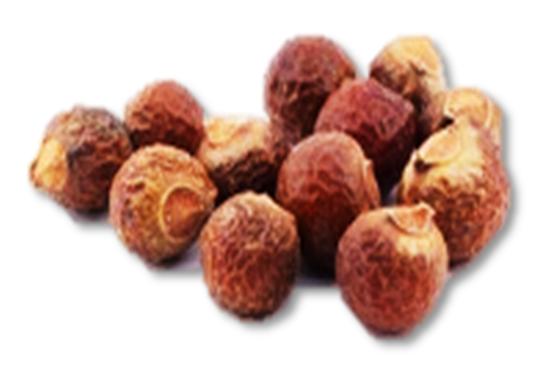
SYNONYM-
Indian soapberry, washnut, ritha
BIOLOGICAL NAME-
Sapindusmukorossi
FAMILY –
Sapindaceae
USES –
used as Surfactant ,Cleanser, antidandruff
-
-
- Henna
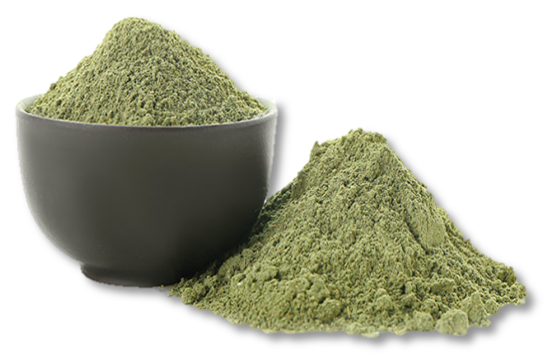
SYNONYM-
henna, mehendi
BIOLOGICAL NAME-
Law Soniainermis
FAMILY-
Lythraceae
USES-
as dye for skin, hair
-
-
- Rose water
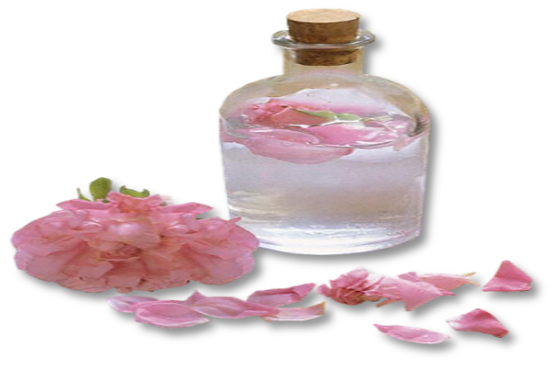
Rosewater is used as an emollient, and sometimes used in cosmetics such as cold creams, toners and face wash. Also as a perfume and moisturizer. Rose Water is have a mild astringent property which help to reduce oiliness and dandruff. It has anti-inflammatory properties, which may make it beneficial for scalp conditions.women with curly hair swears by rose water's ability to calm down frizz and add improve shine.It’s also component of perfume.
-
-
- Vitamin E
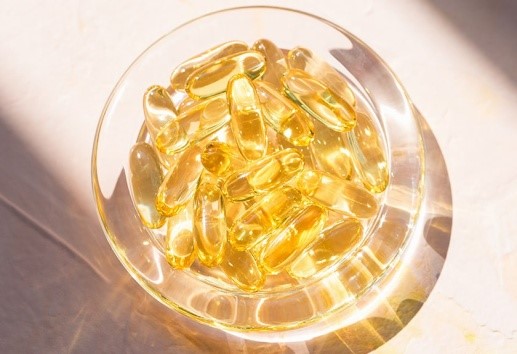
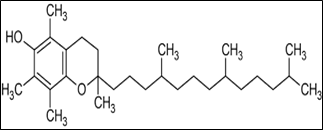
Vitamin Eis a generic name used for class of eight chemicals, comprising derivatives of tocopherol and tocotrienol. Tocopherols and tocotrienols are found in naturally occurring vitamin E in alpha, beta, gamma, and delta isomers according to methyl and hydroxyl substitutions in their phenolic rings. The chromanol double ring in vitamin E has a hydrophobic side chain to permeate membranes and a hydroxyl group to lower free radicals. Vitamin E oil minimizes breakage, traps moisture, and shields hair from damage. Because vitamin E contains naturally occurring antioxidants that may promote hair growth, it may help support a healthy crown and hair. Antioxidants and vitamins can minimise the amount of free radicals and oxidative stress that cause the hair follicle cells deterioration

Synonym:
Jordan almond
Biological name :
Prunusamygdalus
Family:
prunus
Uses:
Promotes hair growth ,Scalp health and Hair softening
6.Neem
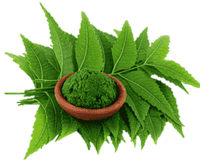
Synonym:
Margosa, Indian Lilac Kadunimb,
Biological name:
Azadirachtaindica
Family:
Meliaceae
Uses:
1. Insecticide
2. Fungicide
3. Used in shampoos for treating dandruff and in soaps or creams for skin conditions
7. Rosemary:
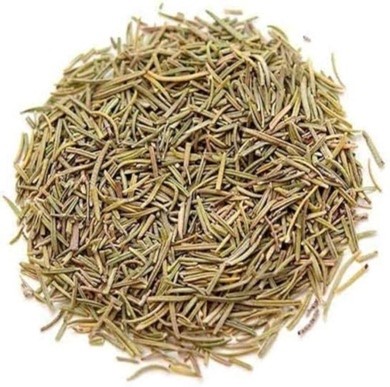
Synonym:
Gulmehendi
Biological name:
Salvia rosmarinus
Family
:Lamiaceae
Uses:
Rosemary is believed to promote hair growth by improving blood circulation to the scalp, potentially encouraging the growth of stronger and healthier hair.
Flaxseed
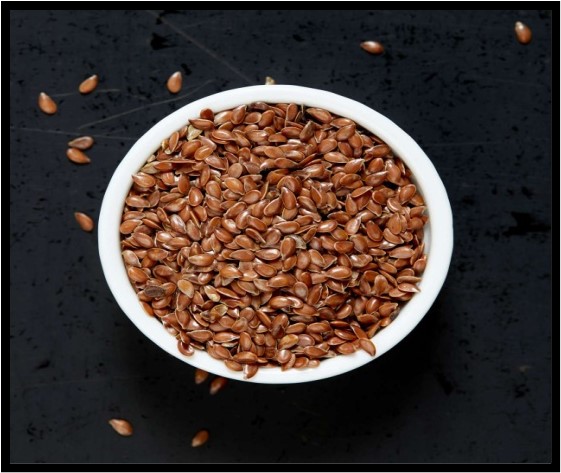
Synonym - linseed
Biological name-
Linumusitatissimum (Linn.)
Family-
Linaceae
Uses:
improve scalp condition, strengthen the hair shaft, and enhance shine and manageability.
9. Fenugreek

Synonym – Methi
Biological name-
Trigonella forum
Family-
Fabaceae
Uses:
Fenugreek seeds are rich in protein, and nicotinic acid content, renowned for their capacity to fight hair fall and dandruff
10. Amla powder

Synonym:
Amla, Indian goose berry
Biological Name:
Phyllanthusemblicalinn
Family:
phyllanthaceae
Uses
It used for nourishing the scalp and Strengthens hair and root
11. Citrous Oil

Synonym:
Bitter orange peel, Seville orange
Biological Name:
citrus aurantium Linn
Family:
Rutaceae
Uses :
Protect the hair from UV rays and Help to reduce dandruff and relive from itchy scalp
EVALUATION PARAMETERS [17, 18, 19, 20]
Following are the general parameters for evaluation of herbal serum
-
- General Appearance Test:
This involves assessing the colour, odour, and texture of the serum to ensure its overall quality.
-
- pH Test:
The pH of the serum is measured to confirm it falls within the optimal range for hair care products, typically between 4.5 and 7.
-
- Stability Test:
The serum is stored for a minimum of 7 days to evaluate its stability. pH and viscosity are checked initially and after the storage period to ensure consistency, indicating stable formulation.
-
- Microbial Test:
After 7 days, the serum is examined for microbial contamination, specifically fungal growth, after 24 hours.
-
- Viscosity Measurement:
A viscometer is used to determine the viscosity of the serum, providing insights into its consistency.
-
- Homogeneity Test:
A clean slide is used to observe the serum under light for any coarse particles, ensuring uniformity.
-
- Homogeneity Assessment:
Visual inspection is conducted to confirm the absence of lumps, flocculates, or aggregates in the herbal hair serum.
-
- Spreadability Assessment:
Spreadability is evaluated using a standardized method, measuring the spread diameter between two plates to assess the serum's ease of application.
-
- Skin Sensitivity Test (Draize Skin Test):
This test examines potential allergic reactions by applying the serum to shaved areas on the skin and recording observations before and after application.
-
- Sterility Test:
Sterile discs are loaded with the serum and incubated to ensure the absence of microbial contamination.
-
- Emolliency Determination:
This assesses the serum's emollient properties, slipperiness, and residue left after application, providing insights into its moisturizing effects.
CONCLUSION
In conclusion, after reviewing various herbal hair serums, it's evident that these products offer promising benefits such as nourishing the scalp, promoting hair growth, and improving overall hair health. The blend of botanical extracts not only addresses specific hair concerns but also contributes to overall scalp health. Carefully selected herbs work synergistically to nourish the hair from root to tip, providing essential nutrients and moisture. Reetha, Fenugreek (methi), Rosemary, amla, citrus etc provides beneficial nutrition to hairs for smooth shiny and dandruff free hairs. However, it's essential to choose a serum that aligns with your specific hair needs and preferences. It’s important to conduct thorough research, read reviews, and consider consulting with a dermatologist to review possible side effects. By incorporating a high-quality herbal hair serum on hair care routine, potentially achieve healthier, more vibrant hair. We must trust in the potency of nature for a truly enriching hair care journey.
REFERENCE
-
- Patni P., Varghese D., Balekar N. and Jain D.K. Formulation and evaluation of herbal hair oilFor alopecia management. PlantaIndica. 2(3): 27-30, 2006
- Adirajan N., Ravikumar T., SShanmugasunda Ram N. and Babu M. In vivo and in vitro evaluation of hair growth potential of Hibiscus rosa-Sinensis Linn. J Ethanpharm. 88: 235-239, 2003
- Purwal, L., Gupta, S. B. N. and Pande, M.S. Development and Evaluation of Herbal Formulations for hair growth, E- Journal of Chemistry, Vol-5, NO-1, 34-38, 2008.
- Gloor M, FitchtlerC.The basic of protein chemistry, J. Cosmetology, 3, p.193-194, 1973.
- Rathi V., Rathi J.C., Tamizharasi S. and Pathak A.K. Plants used for hair growth promotion: A Review. Phcog Rev. 2(3): 165-167, 2008
- Price VH. Treatment of hair loss. N Eng. J Med. 1999; 341(13):964–973. Doi: 10.1056/NEJM199909233411307
- Sinclair R. Male pattern androgenetic alopecia. BMJ. 1998; 317 (7162):865–869. Doi:10.1136/bmj.317.7162.865
- Orasan MS, Roman II, Coneac A, Muresan A, Orasan RI. Hair loss and regeneration performed on animal models. Clujul Med. 2016; 89 (3):327.
- Rogers NE, Avram MR. Medical treatments for male and female Pattern hair loss. J Am AcadDermatol. 2008; 59(4):547–566.
- Complementary A. Or Integrative Health: What’s in a Name? NCCIH. National Center for Complementary and Integrative Health NCCIH; 2016.
- Hosking A-M, Juhasz M, Mesinkovska NA. Complementary and Alternative treatments for alopecia: a comprehensive review. Skin Appendage Disorders. 2019; 5(2):72–89. Doi: 10.1159/00049203
- Soleymani T, Shapiro J. The Infatuation with Biotin Supplementation: is There Truth behind Its Rising Popularity? A Comparative Analysis of Clinical Efficacy versus Social
- Dawber R, Rundegren J. Hypertrichosis in females applying minoxidil Topical solution and in normal controls. J EurAcadDermatolVenereol. 2003; 17(3):271–275. Doi:10.1046/j.1468-3083.2003.00621.x
- Upadhyay, A. & Singh, D. K. (2012). "Pharmacological effects of Sapindusmukorossi". Revista do Instituto de Medicina Tropical de São Paulo. 54 (5): 273–280. Doi: 10.1590/s0036-46652012000500007. PMID 22983291.
- Kirsten Nunez, November 2020, Hair Serum Benefits and How to Use,https://www.healthline.com/health/how-to-use- serum-for-hair.
- SnehaKalra, March 2020, Hair care: Advantages, disadvantages and everything you need to know about HairSerums,https://www.pinkvilla.com/fashion/beauty/hair-care-advantages-disadvantages
- Aruna V, Amruthavalli GV, Gayathri R. Hair root activation by anagengrow- an herbal hair growth serum. Dermatol&Cosmet 2019; 1(3): 56-9.
- Reddy TUK, Sindhu G, Rajesh S, Aruna B, Rani KSS. Preparation and evaluation ofherbal hair oil. Indo Am. j. pharm. Sci2017; 4(06): 1540-6.
- Shah RR, Mohite SA, Patel NR. Preparation and evaluation ofpolyherbal hair oil- an effective cosmetic. Asian J Pharm Res 2018; 8(1): 36-8.[http://dx.doi.org/10.5958/2231-5691.2018.00007.2]
- Sumangala BK, Kalpana P, Aishwarya T, Krithika G. Evaluation ofherbal formulations on fungal pathogens of plants: A case study. ActaScientific Agriculture 2019; 3: 122-4. [http://dx.doi.org/10.31080/ASAG.2019.03.0734
- Viswanad V, Aleykutty NA, Jayakar B, Zacharia SM, Thomas L.Development and evaluation of antimicrobial herbal formulationscontaining the methanolic extract of Samaderaindica for skindiseases. J Adv Pharm Technol Res 2012; 3(2): 106-11.[http://dx.doi.org/10.4103/2231-4040.97285] [PMID: 22837958]
- Department of Medical Sciences. Thai Herbal Pharmacopoeia 2019. Nonthaburi Province: Department of Medical Sciences; 2019. Royal Thai Government Gazette. Herbal Products Enactment, Bangkok; 2019 1. Joey E Lai Cheong, John A McGrath (2009) Structure and function of skin, hair and nails. Medicine 37(5): 223-226
- Sakuldach M, Phakdeekul W, Kedthongma Comparisons Health Literacy to the Performance of Volunteers in Elderly Care, Pad Subdistrict Municipality, Kham Ta Kla District, SakonNakhon Province. Test EngManagt. 2020; 83:16398-16400.
- Anusha R, Akhila N, NikhithaJ,Harish K, Shaikh AR, Sony Y et al. Formulation andevaluation of herbal hair serum-a review. Int J Basic ClinPharmacol 2023;12:759-65.
- Gholop C, Dhale P, Badhekar A, Shinde PM, Datkhile S. Review on Formulation and Evaluation of Herbal Hair serum. IJARSCT. 2022;(2):222-5
- Wijaya WH, Mun'im A, Djajadisastra J. Effectivenesstest of fenugreek seed (Trigonellafoenum-graecum I.)Extract hair tonic in hair growth activity. Int J CurrRes. 2013;5(11):3453-60
- RuchiTiwari,Gaurav Tiwari1, AjeetYadav and VadivelanRamachandran, Development and Evaluation of Herbal Hair Serum: A traditional way to Improve Hair Quality, research article, The Open Dermatology Journal,2021,52-58
- Shivshankarjaganathshinde, Kute.C.G..,andDr.PrachiUdapurkar, Formulation and Evaluation of Herbal Hair Serum, 3 IJCRT | Volume 11, Issue 6 June 2023, ISSN: 2320-2882
- Shah RR, Mohite SA, Patel NR. Preparation and evaluation of polyherbal hair oil- aneffective cosmetic. Asian J Pharm Res 2018; 8(1): 36-8.34.Cross Ref Gautam S, Dwivedi S, Dubey K, Joshi H. Formulation and evaluation of herbal hair oil. Int J ChemSci 2012; 10(1):349-53
- Pawar Shankar ,ShindePallavi .M. ,Datkhile Sachin .V. ,Review on Formulation and Evaluation of Herbal Hair Serum, International Journal of Research in Engineering and Science (IJRES), ISSN (Online): 2320-9364 Volume 10 Issue 11 , November 2022 ? PP. 13-16


 Shraddha P. Vaishnav *
Shraddha P. Vaishnav *
 Vinit khairnar
Vinit khairnar
 Sudarshan kale
Sudarshan kale
 Chaitali markand
Chaitali markand
 Kashish khairnar
Kashish khairnar
 Mrunali Kothawade
Mrunali Kothawade












 10.5281/zenodo.10953573
10.5281/zenodo.10953573